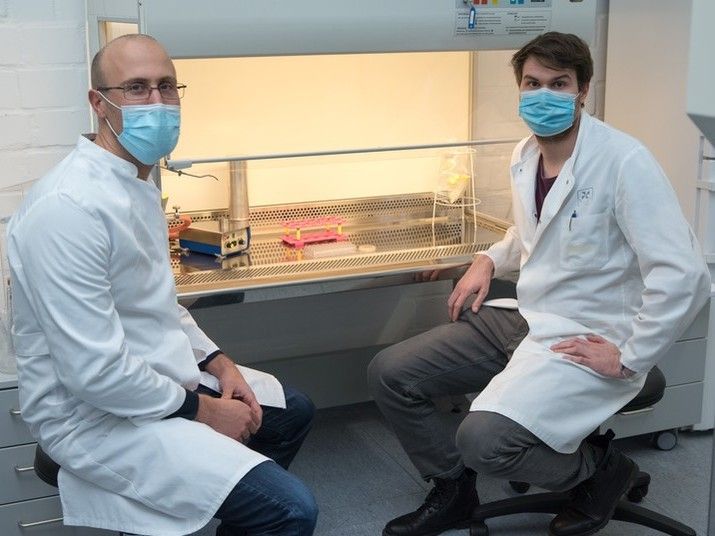At last: Concise synthesis of potent neurotoxin, tetrodotoxin
Researchers have discovered a concise way to synthesize a “biosynthetic and ecological enigma” that has intrigued chemists and biologists for more than a century: tetrodotoxin (TTX), a potent natural neurotoxin commonly associated with pufferfish that is also used as a vital probe in neuroscience research.

Unsplash
The novel 22-step process they outline provides a scalable approach to producing biologically active TTX and TTX derivatives from commercially available starting materials. Illuminating this synthesis process will also help scientists better understand TTX biosynthesis and chemical ecology, and may inform development of next-generation clinical analgesics.
TTX is one of the most powerful neurotoxins known and has been found in a number of disparate species ranging from pufferfish and octopuses to toads and newts. Biosynthesized in bacteria that infect these species, it accumulates in their hosts’ bodies and is often co-opted as a defense against predators. TTX has also become an indispensable tool in neurological research. As a selective blocker of voltage-gated sodium channels in nerve cell membranes, it can be used to silence signals within neural circuits. Its use as a clinical analgesic is also a topic of ongoing research.
However, the TTX molecule is complex – an intricate structure of oxygen-rich interconnected rings – and its synthesis by organic chemists has been challenging. Here, David Konrad and colleagues analyzed previous syntheses of TXX, the first of which was reported in 1972, uncovering several common features that motivated them to pursue a distinct strategy. Now, they present a relatively concise method to synthesize TTX from a glucose derivative. According to Konrad et al., a 1,3-dipolar cycloaddition enabled formation of the cyclohexane core of the molecule at a later stage than previous approaches. In total, the 22-step process enabled an 11% overall yield from starting materials.
Most read news
Original publication
Organizations
Other news from the department science

Get the life science industry in your inbox
By submitting this form you agree that LUMITOS AG will send you the newsletter(s) selected above by email. Your data will not be passed on to third parties. Your data will be stored and processed in accordance with our data protection regulations. LUMITOS may contact you by email for the purpose of advertising or market and opinion surveys. You can revoke your consent at any time without giving reasons to LUMITOS AG, Ernst-Augustin-Str. 2, 12489 Berlin, Germany or by e-mail at revoke@lumitos.com with effect for the future. In addition, each email contains a link to unsubscribe from the corresponding newsletter.
Most read news
More news from our other portals
Last viewed contents
Blusher
Differential_centrifugation
Selamectin
Virility
Alefacept
Disaccharide
Olfaction





















































